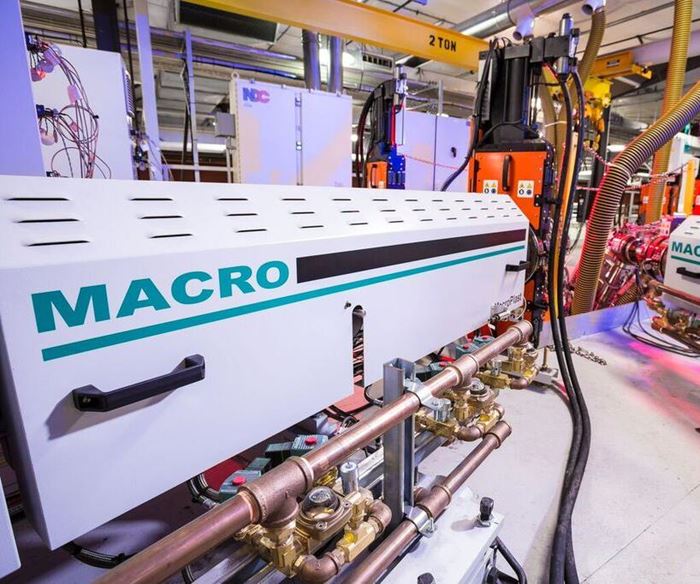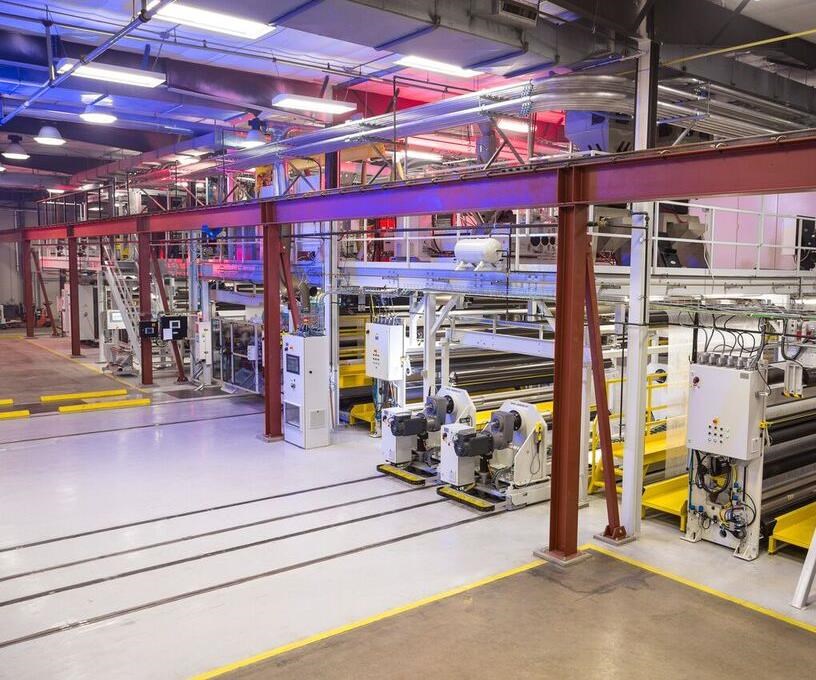Macro Engineering, Raven Industries Partner on New 7-layer Cast Extrusion Line
The line includes the addition of two individual extrusion dies to process low and high viscosity resin types.
Macro Engineering and Technology Mississauga, Ont., has installed a new 7-layer cast extrusion lamination line at Raven Industries in Sioux Falls, South Dakota.
“We took on the challenges this project presented to us along with the Raven development team,” stated Jim Stobie, CEO of Marco Engineering. “This is a win-win situation for both companies as we partner up to deliver innovative products to the industry.”
“This line provides opportunity for Raven to partner with our customers in the development of some truly unique products with exceptional value propositions,” stated Anthony Schmidt, vice president and general manager for Raven Industries’ engineered films division. “The advanced capabilities of this production line will accelerate our expansion into the industrial business segment by offering a broad range of highly refined composite materials — with several being new to the industry.”
This new 7-layer cast lamination line is capable of processing advanced barrier structures designed specifically to prevent the migration of radon, methane, odors and hazardous VOCs. Unique line features include the addition of two individual extrusion dies to process low and high viscosity resin types. The separate dies enable production of custom-engineered fabric composites, scrim-reinforced membranes and integrated release liners. The new line boasts advanced wide-width cast capabilities of up to 150 inches (3.8m), ranging from 4 mil (0.1mm) to 80 mil (2mm) in thickness.
Related Content
-
The Importance of Barrel Heat and Melt Temperature
Barrel temperature may impact melting in the case of very small extruders running very slowly. Otherwise, melting is mainly the result of shear heating of the polymer.
-
Use Interactive Production Scheduling to Improve Your Plant's Efficiencies
When evaluating ERP solutions, consider the power of interactive production scheduling to effectively plan and allocate primary and secondary equipment, materials and resources on the overall production capacity of the business and conclude that this is a key area that cannot be overlooked.
-
Why Are There No 'Universal' Screws for All Polymers?
There’s a simple answer: Because all plastics are not the same.














